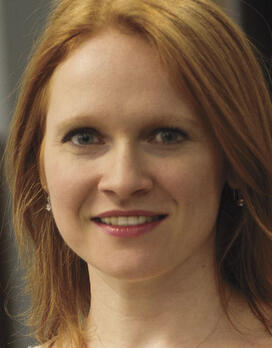Much of our reading today comes in short bursts — Facebook updates, tweets, and bits of news on our mobile phones. But several alumni believe we still want to settle in to read long essays, fiction, reviews, and poetry, and they’re launching two literary magazines into the crowded media landscape.
Uzoamaka Maduka ’09 is the editor-in-chief of The American Reader, which last fall published its first issue, a 116-page magazine with fiction by Stephen Dixon, poetry by Dean Young, and an essay by William Maxwell on FBI surveillance of black writers during the J. Edgar Hoover era.

“We want to reinvigorate the literary conversation in hopes of restoring literature to its proper place in the culture,” says Maduka, who founded the magazine with Jac Mullen ’11. Several alumni are on staff, and Princeton Associate Professor of English Jeff Dolven is editor-at-large. Based in New York City, the magazine is aimed at 21- to 35-year-olds; Maduka believes the perception that young people read only online “has been mischaracterized. I can go on Facebook, but that doesn’t mean I want to read Anna Karenina on my phone.”
The American Reader has set out an ambitious plan: publishing 12 print editions this year while offering some of the print magazine’s pieces online with additional content. An anonymous investor funded the enterprise through early spring; Maduka is looking for advertisers and additional investors. As of February, the magazine had about 1,000 subscribers, paying $40 a year for its print publication (or $20 for students), and 32,000 online visitors.
The magazine’s launch made a splash in media circles, with articles in The New York Times and The New York Observer that focused on the youth and glamour of the tall, stylishly dressed Maduka as much as on the magazine’s content.

Carr and Tristan Snell ’00 created the magazine as a nonprofit based in Brooklyn and San Francisco with an all-volunteer staff; they juggle editing and fundraising efforts with other full-time commitments. The first issue will feature a piece on the Egyptian revolution, an essay on bicycle culture by Josh Boak ’01, and an interview with Jessica Valenti, author of Why Have Kids?
With some 600 literary magazines already being published, it could be a tough task for these new entries to stand out.
But Dolven says there still is a promising future for literary magazines, even those printed on paper. “I still see more people with a crumpled New Yorker on the subway than people reading from tablets,” he says. “Print is a great technology, and though its place in the evolving information ecology will be smaller than in the past, I suspect that readers of literature will hold on.”













No responses yet